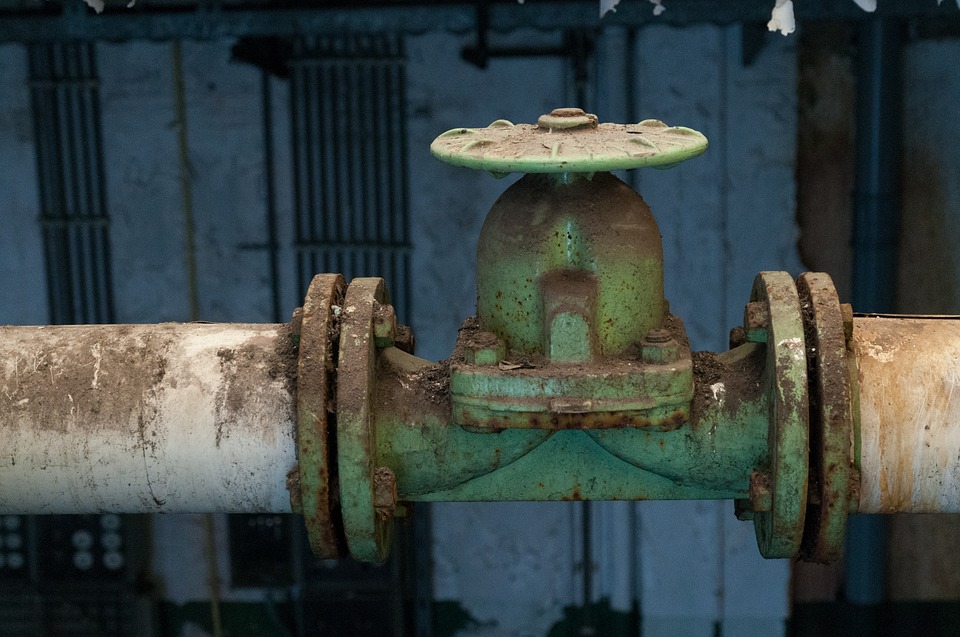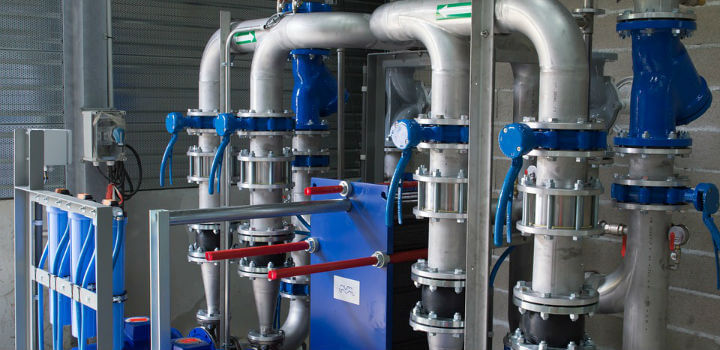Preventing Water Corrosion With These 4 Ways
Written by AOS Treatment Solutions on October 10, 2017

A clean water supply keeps people healthy. Problems can occur in the system such as corrosion, which leads to toxins entering the water. This article highlights effective ways of preventing water corrosion.
What Is Water Corrosion and Why Is It a Problem?
Water corrosion occurs when the pipe’s surface deteriorates. While this happens in most pipework eventually, there are ways of slowing it down and preventing it. The most common form of corrosion is iron oxide, produced as a consequence of water and iron reacting to form rusted metal. Water corrosion is affected and sometimes accelerated by problems such as microbiological outbreaks, the pressure and velocity within the pipe and stagnation time within the pipework. Corrosion within pipes leads to metal toxicity as particles enter the water supply, causing a health hazard. Heavy corrosion in pipes can lead to failure of the water supply and damage to buildings. When deciding the approach to use in an area, a professional will consider the scale of corrosion and severity of the damage to determine the treatment.
Cleaning Pre-Installation
One of the more effective ways of preventing water corrosion is to do some pre-installation cleaning of the pipework before it is installed. This clears off any debris and significantly increases the life of the pipe system. Adding a cleansing agent to the pipework also increases longevity. This process is achieved by flushing the system until there is water clarity.
Adjusting the Alkalinity
One of the most effective ways of preventing water corrosion in pipework is to adjust the pH or alkalinity of the water. This can be achieved safely by using a professional company. The acidity in the water can be caused by acid rain and also from the minerals in local rocks. A pH can be changed by filtering and by adding safe chemicals to the water supply to prevent corrosion. It does, however, result in harder water in an area.
Adding Chlorine to Water
One of the biggest problems causing water corrosion is a microbiological contamination of the supply. Adding chlorine to the water supply is an effective way of keeping water safe and preventing water corrosion, which leads to further problems in a municipal supply. Chlorine is known for its disinfectant properties and is effective at combating bacterial problems. It is essential that water treatments such as chlorination are carried out by professionals because they can have adverse effects, such as an increase in corrosion, if done incorrectly.
Using Phosphates
Phosphates are sometimes added to a water supply to prevent corrosion. They act as a corrosion inhibitor to prevent leaching of metals from lead and copper pipework. When inorganic phosphates are added to the water supply, they form an insoluble protective mineral scale layer on the inside of service pipes and household water lines. This helps maintain the pipelines from water corrosion. The amount of phosphate in a water supply is very small compared to that in a typical adult diet. Phosphates and other chemical water treatments need to be handled by professionals, who have the expertise to assess the type of treatment most suited to an area.

The piping infrastructure of water-treatment plants is particularly vulnerable to corrosion, an issue that is more costly and creates more maintenance problems than almost any other type of damage. While preemptive corrosion prevention measures can protect a treatment facility’s piping system and extend the life of the plant, the catalysts of corrosion can vary. However, there is no one-size-fits-all solution for the corrosion that occurs in the piping of a water treatment plant.
Understanding Treatment Plant Infrastructure Corrosion
Corrosion Inhibitors: Solution Options
- Those that interact with the free-floating minerals in the system’s water supply.
- Those that line the inside of the infrastructure’s pipes.
Passivity Inhibitors (Passivators)
- Chlorine dioxide
- Hypochlorite
- Ozone
- Chlorine gas
- UV Light
Cathodic Inhibitors
Organic Inhibitors
Precipitation-Inducing Inhibitors
Volatile Corrosion Inhibitors
Keeping water corrosion under control and taking a preventive approach to maintenance is vital to keeping a municipal water supply safe and hazard free. AOS Treatment Solutions provides independent water analysis services to determine the best corrosion control treatment to maintain high standards in your water supply. When looking for high quality groundwater treatment for your municipal water system contact AOS Treatment Solutions today. They can safely and effectively provide all your municipal water treatment needs.

